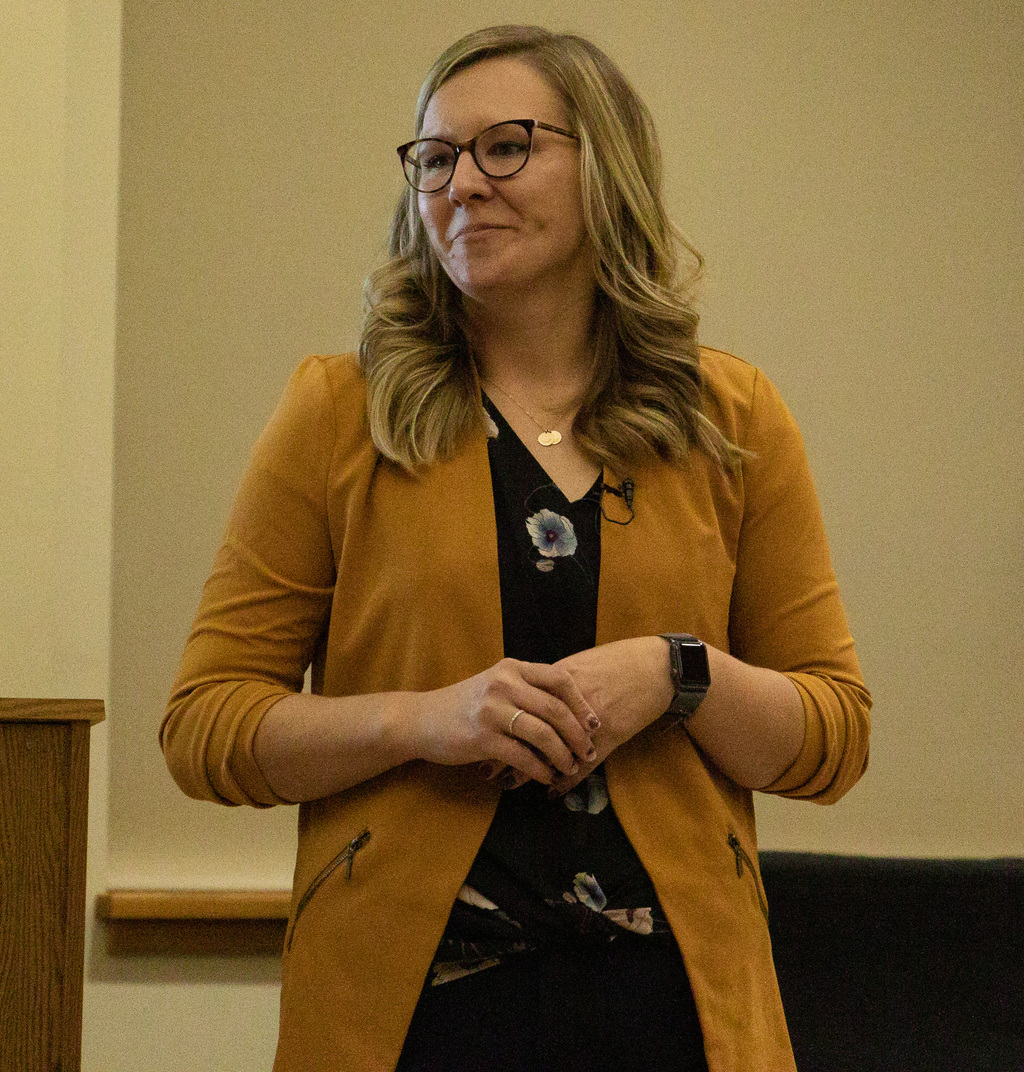Helmbrecht shares dissertation findings

CHADRON – Chadron State College Assistant Professor in Health, Physical Education, and Recreation Dr. Brittany Helmbrecht spoke about her dissertation during a Graves Lecture earlier this month. As a first-generation student herself, she designed her doctoral research to learn more about factors that cause stress among first-generation college students.
For the purpose of her study, she defined first-generation as students with neither parent having any higher education. In her survey of 164 students, she found first-generation students are more likely to experience stress for a variety of contributing factors, such as income level, paying for college, identifying as a minority, and employment.
“All of those things together add more stress. First-generation students tend to struggle more with adjustment to college and they have to rely more on institutional supports. If we're running a race, first generation students are a few steps behind their continuing generation peers,” Helmbrecht said. “I wondered if there was a way we could figure out how to bridge that gap between first-gen and continuing-generation students and get them on a level playing field when it comes to stress.”
Helmbrecht studied the relationship between perceived stress, self-esteem, social support, locus of control, and coping strategies to the stress levels of first-generation college students.
“After I found out if they were related, I wanted to find out if one factor could predict higher or lower levels of stress in students” she said.
She said she found those with higher levels of self-esteem had lower levels of stress.
“They're go-getters. They like to ask questions. That helps people succeed,” she said.
Helmbrecht found students who attributed life events to chance had more severe stress than those who scored high on the internal locus of control or internal motivation scale.
“When you feel that life happens to you, or you leave things up to chance, that's a more stressful way to live,” she said.
Helmbrecht studied proactive coping strategies such as goal setting and focus on positive self-talk where students directly addressed problems through journaling and brainstorming solutions. She also found lower levels of stress in first-generation students who actively engaged in emotional support seeking.
“I think that shows sometimes we just need an outlet. We just need to talk to people and we need to be supported emotionally,” she said.
Key factors in reducing stress for first-generation students from her study include counseling services should be readily available and students need exposure and opportunities to engage in positive health behaviors.
“Students are more likely to participate in positive healthy behaviors if they see other people doing them. This is something I've really tried to do with my students, being more open with them and letting them know I've experienced anxiety. Being a role model to students, showing you are engaging in positive health behaviors is really going to benefit them because when they see it, it puts them at ease and they're more willing to do those things,” Helmbrecht said.
—Tena L. Cook, Marketing Coordinator
Category: Campus News, Employee Awards & Achievements
